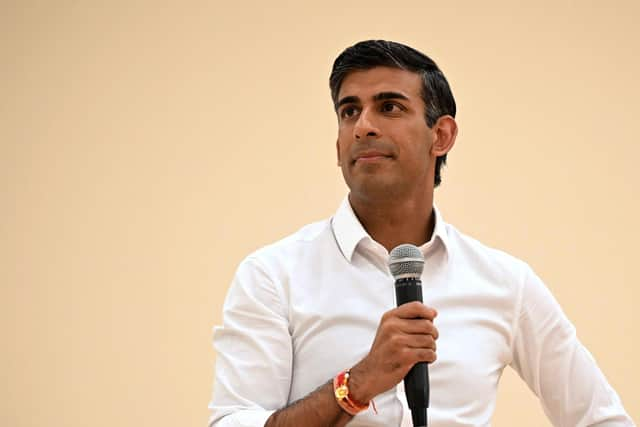Rishi Sunak leadership: Former Chancellor would become youngest UK prime minister in modern political history if he wins contest
At 42, he is a year younger than existing record-holder, David Cameron, who was 43 when he became PM in 2010.
Tony Blair was also 43 when he became prime minister in 1997, but was a few months older than Mr Cameron at the time both won power.
Outgoing prime minister Liz Truss is 47.
Advertisement
Hide AdAdvertisement
Hide Ad

Only two other PMs since 1900 have taken office below the age of 50 – John Major (47 in 1990) and Harold Wilson (48 in 1964).
However, Mr Sunak would not be the youngest PM ever to hold the office in this country.
As his name suggests, William Pitt the Younger was famous for his youthfulness and was just 24 when he first became prime minister in 1783.
But Mr Sunak would make history in terms of ethnicity, being the first non-white prime minister of the UK.
The new PM will be the third person to hold the job since the last general election, following Boris Johnson and Ms Truss.
The last time the UK clocked up three different prime ministers in the course of one parliament was in 1940, when Winston Churchill took the role following Stanley Baldwin, who served from 1935 to 1937, and Neville Chamberlain (1937-1940).
The new prime minister will also be the fourth in a row – after Theresa May, Mr Johnson and Ms Truss – to take power without a general election.
The last time an election led directly to a change of PM was in 2010, when Mr Cameron took office at the head of a Conservative-Liberal Democrat coalition, replacing Gordon Brown’s Labour government.
Advertisement
Hide AdAdvertisement
Hide AdIt is necessary to go much further back in history to find the last time a prime minister both took and left office at a general election.
This was the fate of Edward Heath, who won power at the polls in 1970, only to lose it again in 1974.
Comments
Want to join the conversation? Please or to comment on this article.